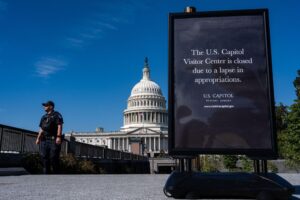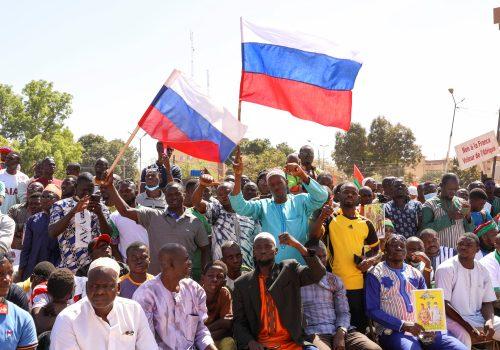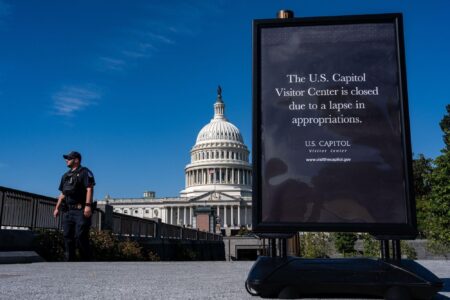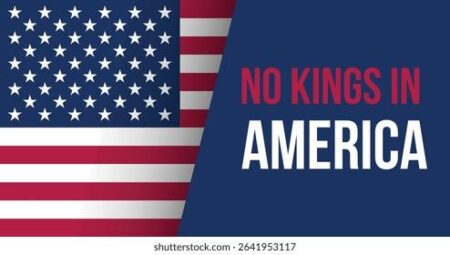Transforming U.S. Engagement in West Africa: A Strategic Imperative for Stability and Growth
Adapting U.S. Strategies to Address Complex Security Challenges in West Africa
West Africa’s security landscape is rapidly evolving, presenting the United States with a pressing need to move beyond conventional counterterrorism tactics. The region is grappling with escalating insurgencies, widespread transnational criminal networks, and fragile political environments. To effectively respond, Washington must cultivate deeper, more collaborative partnerships that integrate regional insights and emphasize sustainable development alongside security objectives.
Key components of this renewed approach include:
- Strengthening diplomatic engagement: Building robust relationships with regional bodies such as ECOWAS and the African Union to coordinate comprehensive security responses.
- Investing in economic and social resilience: Supporting initiatives that create employment opportunities, improve education, and develop critical infrastructure to tackle the root causes of instability.
- Combating misinformation: Enhancing efforts to counteract disinformation campaigns that undermine governance and fuel external malign influences.
- Empowering local security forces: Providing training and resources to ensure security personnel operate effectively while respecting human rights and the rule of law.
Without broadening its engagement framework, the U.S. risks perpetuating cycles of instability and missing strategic opportunities. A balanced strategy that combines diplomatic finesse, developmental support, and measured use of force is essential to address West Africa’s multifaceted challenges.
Building Enduring Economic Partnerships to Drive Sustainable Progress
For West Africa to achieve lasting economic growth, the United States must shift from short-term, transactional interactions to forging enduring partnerships that yield mutual benefits. Sectors such as agriculture, clean energy, and digital innovation offer promising avenues for collaboration that can stimulate job creation and infrastructure enhancement. By channeling investments into these areas, the U.S. can help establish innovation ecosystems and empower local entrepreneurs, thereby strengthening the region’s economic foundation.
Strategic priorities to amplify impact include:
- Facilitating trade: Simplifying customs procedures and harmonizing regulations to enhance cross-border commerce.
- Developing human capital: Expanding vocational training and educational exchange programs to equip the workforce with relevant skills.
- Advancing green infrastructure: Supporting renewable energy projects like wind farms and solar microgrids to address climate change and reduce fossil fuel dependency.
- Encouraging private sector collaboration: Offering incentives for U.S. companies to partner with West African businesses, fostering sustainable investment flows.
| Industry | Opportunity | Expected Outcome |
|---|---|---|
| Agriculture | Advanced irrigation and mechanization | Enhanced food security and export capacity |
| Renewable Energy | Solar and wind energy projects | Expanded access to electricity in rural areas |
| Technology | Mobile banking and fintech solutions | Greater financial inclusion and entrepreneurship |
Strengthening Regional Security Through Collaborative Multilateral Efforts
Addressing West Africa’s security threats requires a united, multilateral approach. The United States must deepen its cooperation with regional organizations like ECOWAS and the African Union, as well as international partners, to effectively counter terrorism, human trafficking, and political unrest. Enhanced intelligence sharing, joint military training, and coordinated rapid response capabilities are vital to this effort. Such collaboration fosters a nuanced understanding of local contexts and builds resilience against cross-border threats.
Essential elements for advancing security cooperation include:
- Expanding military-to-military partnerships to improve interoperability and operational readiness.
- Backing regional peacekeeping missions and crisis management initiatives.
- Investing in grassroots conflict prevention programs that engage communities directly.
- Promoting diplomatic solutions to resolve disputes peacefully and sustainably.
| Partners | Focus Areas | Anticipated Benefits |
|---|---|---|
| U.S. & ECOWAS | Counterterrorism & Joint Training | Enhanced rapid response capabilities |
| African Union & United Nations | Peacekeeping & Conflict Mediation | Sustained reduction in conflicts |
| U.S. & Local NGOs | Community Resilience & Economic Empowerment | Improved social cohesion and stability |
Empowering Governance and Civil Society to Bolster Democratic Foundations
The fragility of democratic institutions in West Africa calls for targeted investments in governance reforms and the strengthening of civil society. Authoritarian tendencies and extremist groups exploit governance gaps, making it imperative for the U.S. to support transparent institutions, judicial independence, and credible electoral processes. Such efforts enhance democratic legitimacy and build local capacities for accountable governance.
Civil society organizations play a pivotal role in sustaining democratic resilience by providing oversight and amplifying citizen voices. A comprehensive engagement strategy should emphasize:
- Capacity enhancement: Offering training and resources to NGOs to effectively champion human rights and transparency.
- Inclusive dialogue facilitation: Creating platforms that encourage participation across diverse ethnic and socioeconomic groups to foster unity.
- Digital empowerment: Supporting technological tools that enable civic education and mobilization.
| Governance Aspect | Current Challenge | U.S. Role |
|---|---|---|
| Judicial Independence | Political interference undermining courts | Providing technical assistance and monitoring |
| Electoral Integrity | Instances of fraud and irregularities | Supporting election observation and funding |
| Civil Society Trust | Restrictions on freedoms and expression | Advocacy support and diplomatic engagement |
Conclusion: Embracing a Holistic and Forward-Looking U.S. Policy in West Africa
As geopolitical currents shift and West Africa confronts mounting security, economic, and governance challenges, the United States must abandon outdated, transactional approaches. The Atlantic Council’s call for a broadened, integrated engagement strategy is more relevant than ever. By combining diplomatic efforts, economic investment, multilateral security cooperation, and support for democratic institutions, Washington can help foster a stable, prosperous West Africa that aligns with U.S. strategic interests. The moment demands bold, coordinated action that transcends incrementalism and builds enduring partnerships based on shared goals and mutual respect.







